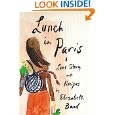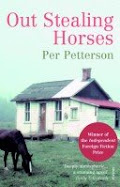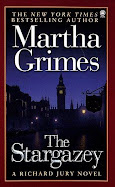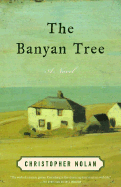I found the first part of this book to be both a sobering and heartening read. 'Enjoyable' is not the word, considering the subject matter- the massacre of seven year-old Jakob's family at Nazi hands, his escape to Greece and the profound effect that witnessing this and other horrors has on his life, including his haunting by his murdered sister Bella. The message is eventually of healing; a peace that comes through the self-expression of poetry.
The relationship between Jakob and his rescuer/'Godfather' ('koumbaros'), was well drawn- the tenderness and respect they have for each other; their shared suffering resulting in a mutual understanding which can only be described as pure love.
Jakob receives a most amazing education from geologist Athos, who literally digs him out of the mud at Biskupin. Athos has a grip on our rootedness (if there is such a word!) in history and on the earth. "What is a man", said Athos, "who has no landscape? Nothing but mirrors and tides." I loved the descriptions of Greece, their friendships, their conversations, their shared discoveries.
Jakob speaks Yiddish, Polish and a smattering of German. With Athos he learns Hebrew, Greek and eventually English. The redemption of language is displayed in this novel. For Jakob, remembering his experiences in Polish or Greek is too painful- the memories are bound up in the language. However he finds that English is one step removed "English could protect me; an alphabet without memory". He starts to write poetry and makes the telling statement "Poetry, the power of language to restore".
Anne Michaels, the author, skillfully weaves in snippets of stories about Nazi occupation of Greece and their treatment of the Jewish people- each atrocity revealed by a hint or a glimpse fills the reader with fresh horror. It is very difficult to write about such subject matter in a work of fiction, but I think the author does it well. Such is her evocation of the effects of these horros on the survivors that when in part 2 Ben's father (a ghetto survivor and escapee) tries to enrol for a Canadian pension and comes face-to-face with an ex-Nazi (one presumes) now working in Canadian civil service, the cruelly whispered words "you do not have the right papers" sends chills down the spine.
Jakob talks about photographs he later sees of Nazi officers carrying out their 'duties'- how their faces are are captured laughing as if they do not believe they are doing anything wrong- as if they really believe that the people they are humiliating are not part of humanity- they are less than human- they are vermin. Jakob does not believe this however- he does not believe that they didn't know. He believes that deep down they each knew their victims were fully human. Their faces are lying, he says, and he finds this frightening. "If truth is not in the face then where is it? In the hands! In the hands!"
The second part of the story attempts to relate Jakob's story and experience to Ben, the son of a ghetto-survivor. The author wishes, I think, to show how history effects subsequent generations on a personal level. Ben comes to understand, for example, that his father's unusual behaviour and intense sadness around food; the fact that his mother sometimes has to soothe his father's head as he eats, can be explained by the dehumanising experiences of starvation in the ghetto.
Whilst the author makes some important observations here, I found this second part of the book more difficult to read- partly because I was still too lost in Jakob's story and still too amazed by his miraculous relationship with Michaela, to really want to focus on Ben and his relationships. The scenes of him picking through the deceased Jakob's possessions would ring true with anyone who has had to clear the belongongs of a deceased family member. I thought it was interesting that Ben found that Jakob had a collection of buttons- maybe this was Jakob's way of connecting with his mother who was sewing on buttons at the time of her death and all the boy Jakob could hear was the sound of the buttons clattering onto the floor...
So those are my thoughts! I am yet to find out if Jakob Beer was a real poet as is implied by the preface, or whether he has any published work. I'm off to google...











